- Home
- Jerold Last
The Surreal Killer (Roger and Suzanne South American Mystery Series Book 2) Page 11
The Surreal Killer (Roger and Suzanne South American Mystery Series Book 2) Read online
Page 11
"Nice little fish," he said. "But you'll never get any of the big ones unless you learn how to stay down a lot longer than you did, and you need to learn how to kill them quickly enough that they can't escape."
Then he asked me, "Are you ready to watch the master at work?"
"Sure".
"This time you should follow me down," he said. "Make sure to get a very deep breath!"
We dove a few meters further offshore than where I had speared my fish. I could see the shape and shadow of a big fish at the bottom where we were heading. Huberto, spear poised, dove directly at the fish. It really was a whopper, at least twice as large as mine, maybe even bigger than that. The next thing I knew he was stabbing the fish repeatedly with his spear. He repeatedly hacked away at the fish with his spear until it was hard to see the fish in the rapidly spreading cloud of blood. With a final thrust of the spear he impaled the dying fish and gestured that we should return to the surface. At the surface he gave Suzanne and I a chance to admire his catch before he bagged it. It was a monster, probably the better part of 20 pounds or more. It was also a monster with an awful lot of holes in it; it looked like it had been dropped with a large bore shotgun at very close range.
We dove a few more times but all of the blood from Huberto's kill had seemingly chased the rest of the fish away. We both collected lots of sea urchins and a few crabs and other shellfish so both bags were satisfyingly full. We swam back to shore and the waiting car, which included an ice chest to store our goodies in. Huberto drove us back to the hotel. We thanked him for a great experience. He told us that the fish and shellfish we collected would be his contribution to the seafood stew called curanto at Vincent's party and to remember our dives while we ate it. We shook hands goodbye and went back to our hotel room.
Suzanne summarized our recent experience succinctly. "I'd say that we can take the question mark away from 'shark?' after Huberto's name on our sharks and guppies list and replace it with an exclamation point. I literally couldn't see anything going on down there through all of the blood while Huberto was hacking that fish into stew meat.
After showers and breakfast I called Eduardo and we arranged to meet for beer and ceviche in mid-afternoon to discuss all the things we needed to go over before tonight’s party.
Walking into town we did a bit of sightseeing before our scheduled meeting with our lunch companions at noon. We got a close look at the harbor area, this time on foot, and the people walking around the city’s downtown area. By comparison with Argentina and Uruguay, the population was very ethnically diverse. The majority looked to be Chilean, of course, but we could pick out the shorter and stockier Andean South Americans with more indigenous ancestry from Peru and Bolivia. There were Eastern Europeans with Slavic ancestry, mainly from Croatia, British and Scotland-derived mixtures, Chinese, Mediterranean stock including Greek, and recent immigrants and their offspring from the Arab world. There was also a large dose of Indians and Pakistanis whose ancestors had been imported to work in the nitrate mines early in the 20th Century.
The harbor itself was large and on a weekend day full of cargo vessels and a couple of very large cruise ships here for a visit en route to or from Valparaiso to Lima. A buoy marked the spot where the Esmeralda, captained by Arturo Prat, actually had sunk in the harbor. The full-sized replica of the Esmeralda was secured at the dock and offered tours aboard for the tourists. Lots of stores still advertised additional tourist attractions and guides: archeological tours, deep-sea fishing, hot springs, mud baths, hang-gliding, snorkeling, and nightlife tours including the Casino. People came down here to shop, eat, or just hang out, and lots of people were doing all three activities. The young students from the university and older retirees were the most obvious demographic groups here in the middle of the morning, but a lot of families with young children were also in evidence.
We looked in on a local supermercado. The most unusual item for sale was coca leaves, which are legal in and around the Andean altiplano, selling for about $1 USA per bag. They were suggested for prevention and cure of altitude sickness and were a must for those whose next destination was Cuzco or Lake Titicaca.
Lunch with Romero Sanchez and Pedro Elleman was at a local restaurant on the downtown Plaza called Club Croata, which served traditional Northern Chilean food as a choice of lunch specials at a very low, affordable price of a few dollars. Today the menu featured llama steak, potatoes and vegetable, all of which were surprisingly good. Pedro explained that the restaurant, which featured arched windows and Croatian coats of arms on its walls, was a standard choice for him because of the bargain lunches and in honor of his Croatian ancestors on his father’s side who had migrated to Iquique about 100 years previously. He was in his 30s, tall and good looking with a well groomed mustache and beard, in great shape. I suspected that he was a very popular instructor among the co-eds at the university. He was another fisherman and hunter who enjoyed any activity that took him outdoors, he told us. He was also a dedicated surfer and snorkeler. Romero Sanchez described himself as a “mutt”. He told us that he was of mixed Chilean and Peruvian ancestry, with some Croatian and Middle Eastern Christian ancestry thrown in. He looked fit and also fished, hunted, and surfed. Both men were seemingly completely at ease with us, outgoing, and gregarious. Either could have been associated with the local Chamber of Commerce. While some of our instant rapport could have been because we were all the same age, give or take a few years, a lot of it was also due to their apparently warm and pleasant personalities. Both spoke very good English, but with strong Spanish accents. Romero's English was a good bit more fluent and idiomatic than Pedro's.
The two were obviously good friends as well as professional colleagues, as was apparent from their good-natured banter with each other.
"How are you doing on putting away a little money every week for those two dowries you're going to need pretty soon?" Romero asked Pedro.
"I've got options to buy at least four jackasses. Will that be enough?" replied Pedro.
"It's a start," said Romero.
We must have looked as confused as we were. Romero laughed and told us, "I have two sons, one aged six and the other eight. Pedro has two daughters, one five and the other seven. We've been negotiating the terms of an arranged marriage for as long as we've been good friends, long before either of us had any kids."
Pedro had a wry expression and carefully lifted an eyebrow to indicate skeptical resignation as he conspicuously changed the subject and told us more about the region we were in. “Iquique is pretty far north in the Atacama Desert, so we are far away from Santiago and the rest of Chile. In many ways including geography, history, and traditions, we’re closer to Peru than Chile. There are probably some similarities to California, which is 3,000 miles away from the National Capital, Washington D.C. We are wealthy enough to look after ourselves, and tend to be pretty independent of the Federal system in Chile on a day-to-day basis. Santiago is more than 1,200 miles away geographically, and a lot more than that spiritually. We’re also pretty far away from anything else here because the population of the Atacama Desert is so small outside of the three big coastal cities, and the system of highways is so primitive. This desert is the driest place on the planet from the perspective of rainfall, so all of the cities, small and large, are dependent on water supply from underground rivers that get their water from snow melting off of the Bolivian Andes. There used to be small towns and cities throughout the inland desert at every oasis where the underground water came to the surface, especially where nitrates and nitrites and copper were being mined commercially. Iquique has pretty much drained the available water from these local towns for our own needs, so they have shrunk dramatically in size and importance over the last century.
“That makes this a pretty, how do you say it, aburrido?"
Romero gave him the word in English, "boring."
"That makes this a pretty boring area for tourists, except for Iquique itself, with its beaches, gambling casino, and nig
htlife, which attracts cruise ships and tourists who want a break during the long bus rides from Central Chile or from San Pedro de Atacama to Lima or Cuzco. There are some interesting, how do you say it ,petroglifos?"
This time Suzanne supplied the translation, "petroglyphs".
There are some interesting petroglyphs that have been preserved for thousands of years because of the dry climate that appeal to hard-core anthropologists, but they are hard to get to and fall far short of Disneyworld as a worldwide tourist destination. Retirees come here because they like the climate and lifestyle, but this is not the place for people who like big cities and indoor entertainment.”
Romero, who was also in his 30s, shorter by half a head than Pedro, and had an impressively bushy mustache to complement his easygoing expression, shrugged his broad muscular shoulders and added, “You've probably noticed how many of us are hunters, fishermen, or like to play in the ocean or on the beaches. That’s the big list of things to see and do in and near Iquique other than relatively well paying jobs in teaching, mining, agribusiness, and commercial shipping. We have professional football, which you would call soccer, with a regional league, a full spectrum of sports to watch at the university, and all sorts of amateur leagues to play in here in town if one is so inclined. The University of Chile, except for many of the Departments in Santiago, is still a good place to work even if your terminal degree is a Bachelor’s or Master’s. The agricultural and mining industries need the scientific support of the university and a steady flow of our graduates as a trained workforce, so there is plenty of local support for the university."
It was easy for us to imagine Romero lecturing in front of a large class of students in the same manner as he was talking to us: factual, relaxed, and enthusiastic.
“We have a lot of students here," Romero continued, "So we all have to do a lot of teaching. However, it can be a very rewarding and fairly stress-free lifestyle that certain types of people fall in love with. Most of the faculty who choose to come here tend to stay and make it their permanent home while they raise families and become part of the community. All of the biochemists know each other pretty well and we do a lot of social and professional stuff together like the meetings you attended. Except for Pablo and Norberto, all of us like to do the same types of outdoors activities so for the most part we socialize and spend recreational time together as well as work together. I suspect that most of us will work here until we retire, stay here with our families as retirees, and eventually die here. We could do a whole lot worse in most of the rest of South America.
"If you have any free time tomorrow, Pedro and I were planning to fly over the Atacama Desert and the coast to Antofagasta. We're both licensed pilots and we usually fly out in a 5-seater for the trip, so we have plenty of space. The entire trip should take 3-4 hours unless we decide to stop somewhere, but the sights we'll see are very much worth it. Just call me before 8 AM tomorrow or tell me OK tonight at the party if you decide you can join us. One of us can pick you up at your hotel. It’s right on the way to the airport for both of us."
After some more pleasant discussion of little consequence we finished lunch, staying downtown while they returned to Arturo Prat University. We walked along the beach in the opposite direction than our morning’s run for a couple of hours, just holding hands, enjoying the lovely weather and scenery, and relaxing. It was a nice time-out from the horror of the serial killings that we were here to investigate. It was also a nice time for thinking, which I did a good bit of. A couple of the things I had heard at lunch had pretty much convinced me that I now had a pretty good idea of The Surreal Killer's actual identity. I just had to rule out a couple of more possibilities and I'd be pretty sure who was and who wasn't guilty.
At 4 PM we met Eduardo and sat down to eat, drink, and discuss the case.
Eduardo spoke first. “We’ve identified the victim we found in Lima. Her name was Rosa Sanchez and she was a cocaine user who supported her habit by prostitution and drug dealing. She occasionally transported drugs in moderate quantities. Other than that, there’s not a lot to make her an obvious victim of our killer, and the drug stuff could be incidental to his picking her up to murder. I'd assume she was in the wrong place at the wrong time and that's what made her a victim.“
“Do we know whether there’s a drug connection with any of the other victims?” I asked.
“So far we’ve only identified seven of the earlier nine victims. I don’t have any information on drug use or selling in the files I was given, which are sort of bare bones about the murder victims themselves and don’t have much background information in them. Most of the background stuff I know anything about was told to me casually by the investigating officers, but I’m sure we’d have records on drug use or sales if any of them was ever arrested. Statistically speaking, there’s an excellent chance that at least a few of them took drugs. Lots of poor people in South America do. I’ll check it out.” He made a note in his pocket calendar.
“We’ve run preliminary background checks on all of the names you gave me to check out. I’ve got three former CIA guys and not much else noteworthy thus far. And the CIA stuff is strictly off the record from ‘reliable sources’, not in any police file anywhere.
“How about you guys? Have you made any progress?”
Suzanne answered first, "I'm not too sure of anything yet at this point. I really didn't get any scary or negative vibes from the Spanish-speaking scientists I hung out with in Lima. I think this Chilean group is the right place for us to be looking, and the shark versus guppy test is as good a way as any for us to be triaging suspects down to a number we can manage."
Then it was my turn. “We’ve got three former CIA guys on the record, and a few more guppies to tentatively remove from the list of suspects. All three of the former CIA guys have been pretty open about their past with us. Vincent has been a big help getting us into the group and encouraging them to talk to us and answer our questions. We’ve also got a lot of question marks, and I’m beginning to have a theory about which suspect the Surreal Killer will turn out to be. It’s too early to share, but I think I'm on the right track.
"If my theory is correct it does raise a question I'd like you to answer. We seem to be up to our eyeballs in spies here in Iquique, old spies, retired spies, and younger generation spies. I can envision you getting into scenarios where your job as a Paraguayan policeman could get you into a conflict of interest with your other job as an Israeli Intelligence agent. Have you thought about what you would do if this ever happened to you?”
Eduardo looked thoughtful for a moment, then turned to me and said, "It hasn't ever happened yet, so I can't tell you for sure. I've thought about it a lot though and I guess the most honest answer I can give is it would depend on the specific situation, so it might be different on a case-to-case basis. I really can't imagine it ever happening given how far out of the mainstream world Paraguay is."
"Thanks," I replied. "With luck it never will happen to you."
"OK, what's the game plan for tonight's party?" asked Eduardo.
"I have a strong sense that the best way for the three of us to play it is to let the game come to us. So far, we've just mixed and talked to people and it seems like we're making progress. Let's stay with what seems to be a winning strategy."
Suzanne and Eduardo nodded agreement. "I can't think of any better ideas," replied Eduardo. "Let's enjoy the party and try to stay alert to what's going on."
"One more thing, Eduardo. We've got an invitation from Romero Sanchez and Pedro Elleman to go flying over the Atacama Desert tomorrow morning. I'd love to do some sightseeing while we're here and I think it's a perfectly innocent invitation so it's safe to say yes. But with Suzanne being pregnant I really want to be careful. What do you think?"
Eduardo sat up straighter, looked serious, and gave us an older and wiser look that you might have expected from an uncle. "There's nothing on either of their records to make me particularly nervous. What does your int
uition say, Suzanne?"
"Like I said before, at this stage I don't have a clue. Both of them seem like really nice guys, and if you are right that there's a link back to the military dictatorship in these murders, both of these guys are much too young to be the killer. I think it'll be a fun way to see this part of Chile."
"OK, it's unanimous kids. You can go flying tomorrow," Eduardo said with a smile.
We went back to the hotel, showered, changed, and got a cab to the address Vincent had given us for his house. There was already a pretty good-sized group there. Vincent answered the door when we rang the bell and introduced us to his wife and kids. His wife led us out to the backyard where the others were milling around in small groups drinking beer, wine, Pisco sours, or non-alcoholic soft drinks, offered us drinks, and pointed out a couple of large tables of appetizers and food.

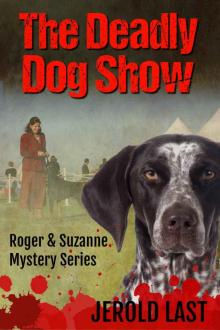 The Deadly Dog Show (Roger and Suzanne South American Mystery Series Book 6)
The Deadly Dog Show (Roger and Suzanne South American Mystery Series Book 6)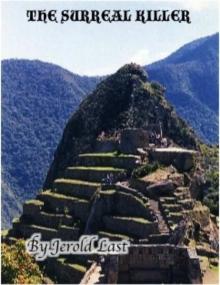 The Surreal Killer (Roger and Suzanne South American Mystery Series Book 2)
The Surreal Killer (Roger and Suzanne South American Mystery Series Book 2)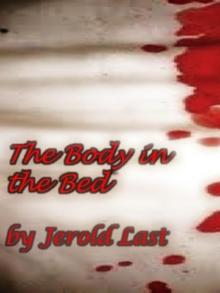 The Body in the Bed (Roger and Suzanne South American Mystery Series Book 5)
The Body in the Bed (Roger and Suzanne South American Mystery Series Book 5)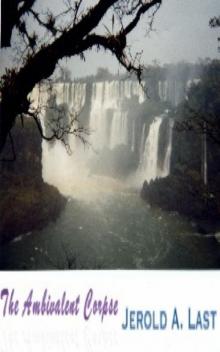 The Ambivalent Corpse (Roger and Suzanne South American Mystery Series Book 1)
The Ambivalent Corpse (Roger and Suzanne South American Mystery Series Book 1)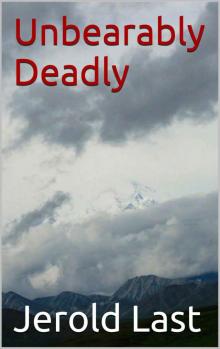 Unbearably Deadly (Roger and Suzanne South American Mystery Series Book 9)
Unbearably Deadly (Roger and Suzanne South American Mystery Series Book 9)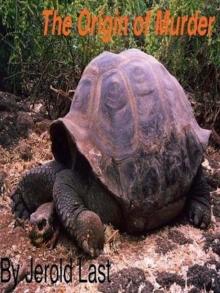 The Origin Of Murder (Roger and Suzanne South American Mystery Series Book 8)
The Origin Of Murder (Roger and Suzanne South American Mystery Series Book 8)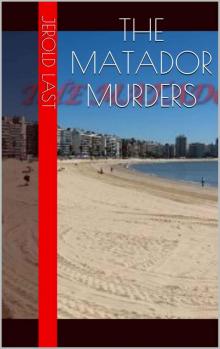 The Matador Murders (Roger and Suzanne South American Mystery Series Book 4)
The Matador Murders (Roger and Suzanne South American Mystery Series Book 4)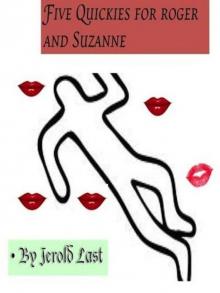 Five Quickies For Roger And Suzanne (Roger and Suzanne South American Mystery Series Book 7)
Five Quickies For Roger And Suzanne (Roger and Suzanne South American Mystery Series Book 7)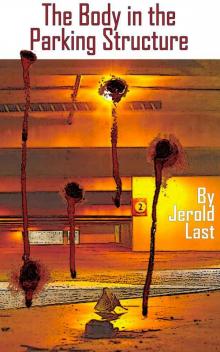 The Body in the Parking Structure (Roger and Suzanne South American Mystery Series Book 4)
The Body in the Parking Structure (Roger and Suzanne South American Mystery Series Book 4)